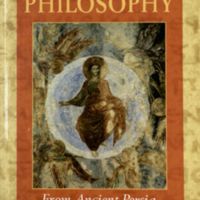Gnostic Philosophy: From Ancient Persia to Modern Times
Dublin Core
Title
Gnostic Philosophy: From Ancient Persia to Modern Times
Description
"Gnosticism was a contemporary of early Christianity whose demise can be traced to Christianity's efforts to silence its teachings. The Gnostic message, however, was not destroyed but simply went underground. Starting with the first emergence of Gnosticism, the author shows how its influence extended from the teachings of Neoplatonists and the magical traditions of the Middle Ages to the beliefs and ideas of the Sufis, Jacob Bohme, Carl Jung, Rudolf Steiner, and the Rosicrucians and Freemasons. In the language of spiritual Freemasonry, gnosis is the rejected stone necessary for the completion of the Temple, a temple of a new cosmic understanding that today's heirs to Gnosticism continue to strive to create."--Jacket.
Creator
Tobias Churton
Text Item Type Metadata
Original Format
Book
Citation
Tobias Churton, “Gnostic Philosophy: From Ancient Persia to Modern Times,” Humanities Hub, accessed February 27, 2026, https://humanitieshub.sdsu.edu/omeka/items/show/494.

